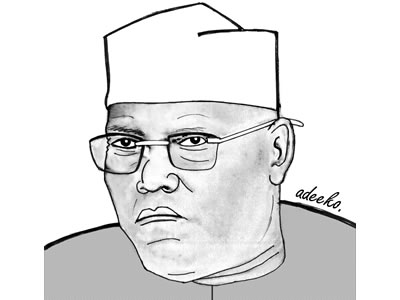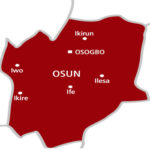The point therefore is to interrogate what Atiku is bringing to the table as he joins the fray of presidential contenders in next year’s election. Since 1989 when Atiku became active in the political space of the country, he has been able to stand by certain principles that have ultimately defined his persona in the Nigeria’s public. In the run up to the celebrated June 12 1993 presidential election, Atiku stood shoulder to shoulder with the late MKO Abiola and indeed stepped down his ambition and joined forces with Abiola to put the SDP in the lead in the election. It is a challenge for those who chorus the sing-song of Atiku’s desperation to be president to pick up the history books and read up his role during the June 12 election and his tireless struggle to enthrone democratic rule in the country. History they say tells no lies. It is on account of Atiku’s stout stance against the dictatorship of military rule that he escaped being martyred by the whiskers and ended up escaping into exile. Ironically, later day converts of democracy are today enjoying the fruit of the labour that Atiku alongside other democrats nurtured to bring about democratic governance in Nigeria.
The point that is under reference here is that through his political trajectory, it is clear that Atiku has remained steadfast in refraining from playing politics of convenience. Either when his life was directly under threat during the Abacha junta or when his political life was in the line for standing by constitutionalism during the Third Term imbroglio, Atiku has paid his dues to convince everyone that he is an irrepressible advocate of democracy and good governance. So, at such a time when there is huge deficit of trust between the electorate and the political class, Atiku represents an identity of a politician who stands for the common good in all situations even against personal conveniences. Although negative narratives from political opponents against Atiku have been sustained over time, it is high time that Nigerians began to interrogate the false red flags that have been raised about Atiku and sieve the facts from the fallacies.
Today, Nigeria is in the throes of mutual division. The spasm and suspicion among the various ethnic groups and faiths in the country is at a frightening height. Almost on daily basis, there is a reckless and needless loss of human lives arising from reprisal attacks and with disunity; the associated problem of insecurity seems intractable. Given the strange and uncertain time that we are in, the only clear solution to the twin problems of disunity and insecurity in Nigeria is in electing a president whose appeal transcends beyond our fault lines. Atiku’s circle of friends cuts across the length and breadth of Nigeria. His disposition is pan-Nigerian and his belief that not ethnic or religious sentiments, but the competences of the individual, should determine their destinies are values that are required of a president that Nigeria should have at this juncture.
Atiku possesses a convincing credential as someone who believes in education and the role it plays in upward social mobility. Either in the public service or in his private businesses, Atiku has been able to give a succinct account of himself as a talent hunter who knows how to assemble a right team for the job. That is a time tested fact that even the worst of his detractors won’t challenge. Little wonder that his tenure as Vice-President when he was the chairman of the National Economic Council remains iconic up till this time. It was an era when the Nigerian economy grew in scale of annual 7 per cent GDP growth. The policies that he espoused such as the National Health Insurance Scheme, the National Pensions Reforms, the creation of anti-corruption institutions, and the Procurement law that acts as a bulwark to inflated invoicing in government procurement are all the brainchild of the Obasanjo/Atiku administration. That was an era when the framework of our national economy was consciously retooled to make the economy work for the common people of Nigeria. There is an urgent need to reinvigorate the economy and make it work for the common Nigerian again. And clearly, Atiku represents the candidate who knows how to get the job done, and get Nigeria working again!
Right now, the country is shouldering a huge burden of a troubled economy with an attendant problem of unemployment particularly among the youth. The prism that you can only give what you have speaks to Atiku’s capacity to create more jobs for the economy. It is not difficult to discern that the biggest national security issue in Nigeria now is the loss of not less than ten million jobs in the last three years. It is the single sequence of jobs losses at an average of three million jobs being lost annually. That is a scary statistics! If we must arrest that trend, and recover lost grounds, it is imperative that Nigeria comes forth with a leader who is skilled and in the art of creating jobs. Atiku currently employs not less than fifty thousand Nigerians directly and two hundred and fifty thousand indirectly in his private businesses and that means he already knows the tricks of the deal. If we understand personal financial insecurity as a catalyst for national insecurity, then the call of the time demands of us to elect the best hands in jobs creation in 2019.
Sanni, a perception management analyst, writes in from Abuja






